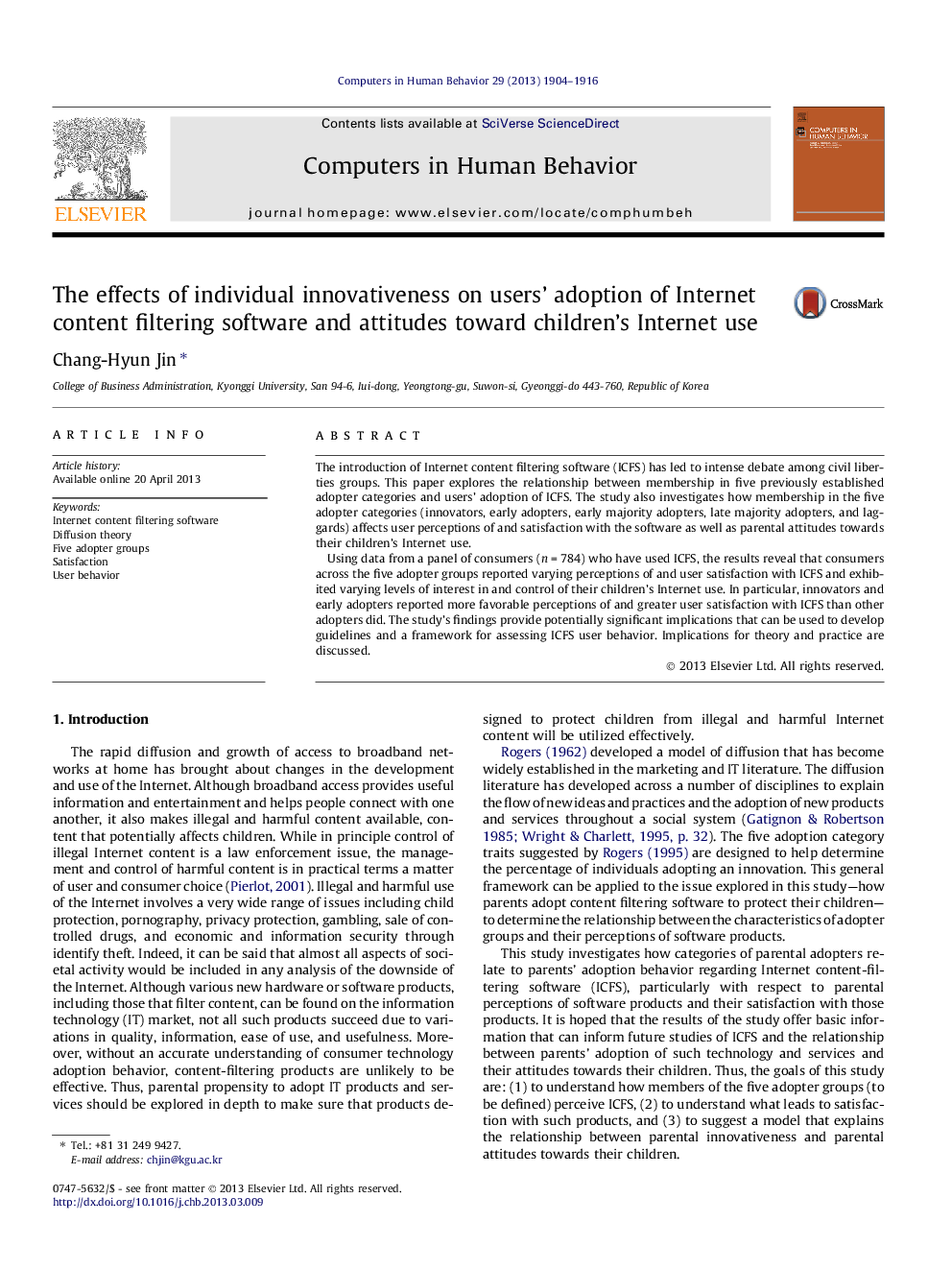| Article ID | Journal | Published Year | Pages | File Type |
|---|---|---|---|---|
| 350900 | Computers in Human Behavior | 2013 | 13 Pages |
•This paper explores the membership in five adopter categories and users’ adoption of ICFS.•Innovators had more favorable perceptions of ICFS than other adopter did.•Early adopters had more positive perceptions of ICFS than other adopter did.•Innovators and early adopters had greater user satisfaction with ICFS than other adopters did.•Innovators and early adopters had greater interest in and control of children’s Internet use.
The introduction of Internet content filtering software (ICFS) has led to intense debate among civil liberties groups. This paper explores the relationship between membership in five previously established adopter categories and users’ adoption of ICFS. The study also investigates how membership in the five adopter categories (innovators, early adopters, early majority adopters, late majority adopters, and laggards) affects user perceptions of and satisfaction with the software as well as parental attitudes towards their children’s Internet use.Using data from a panel of consumers (n = 784) who have used ICFS, the results reveal that consumers across the five adopter groups reported varying perceptions of and user satisfaction with ICFS and exhibited varying levels of interest in and control of their children’s Internet use. In particular, innovators and early adopters reported more favorable perceptions of and greater user satisfaction with ICFS than other adopters did. The study’s findings provide potentially significant implications that can be used to develop guidelines and a framework for assessing ICFS user behavior. Implications for theory and practice are discussed.
